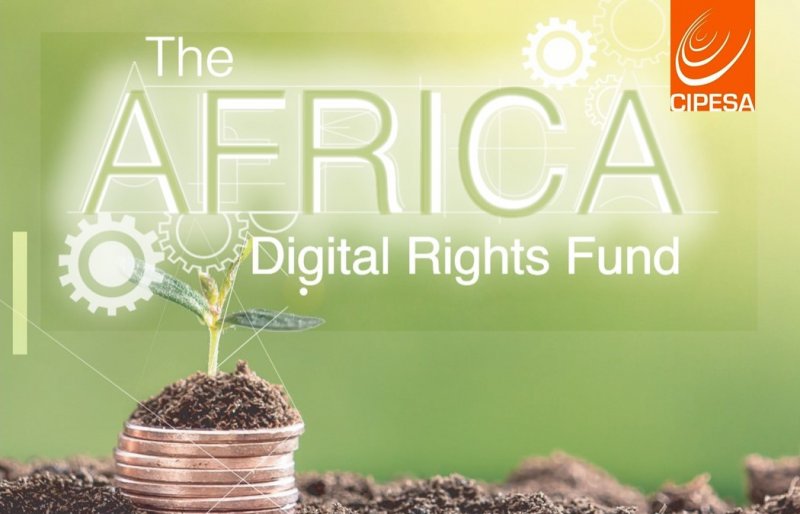By Apolo Kakaire |
Civic space continues to shrink across Africa. In recent years, disruptions to the internet and social media applications have emerged as a common trend of digital repression especially in authoritarian countries in Africa. While the Covid-19 pandemic has reaffirmed the immense importance of digital technologies for government and citizen interactions, public services provision, employment, education and commerce, some governments on the continent used the pandemic as an excuse to impose further clampdowns.
For full realisation of the potential of digital technologies to transform society and economies in Africa during the pandemic and beyond, there is need for continued advocacy to uphold and protect freedom of expression, access to information, and equitable participation online.
It is against this background that between July 5-9, 2021, the Collaboration on International ICT Policy for East and Southern Africa (CIPESA) in partnership with the African Centre for Media Excellence (ACME) conducted an intensive training course on Digital Rights and Impact Communication for grantees of the Africa Digital Rights Fund (ADRF). The ADRF was launched in April 2019 to offer flexible and rapid response grants to select initiatives in Africa to implement activities that advance digital rights, amidst rising digital rights violations.
The training equipped civil society organisations (CSOs) with skills, knowledge and tools to effectively communicate digital rights issues and inspired them to approach communication systematically so as to increase the visibility of digital rights issues in different media and to promote public discussion on digital rights issues.
According to Ashnah Kalemera, the Programme Manager at CIPESA, “the training was the result of the realisation that organisations working in the digital rights arena have inadequate skills to effectively and proactively engage the media and to conduct effective public communications.” She added that, as a consequence of this skills gap, “digital rights issues are poorly covered, commonly with limited depth and sensitivity.”
“Digital rights are a fairly new area of interest, so it is prudent that CSOs working in this space are skilled in pitching appropriate messages in clear language and in making concrete calls to action, especially given that the media is not well-versed or always keen on this subject,” said Kalemera.
The training was preceded by a capacity and training needs assessment which established ADRF grantees’ preeminent training needs as using social media as a tool of influence, communicating research and hard-to sell-subjects, and developing media advocacy strategies. The findings of the assessment informed the development of the curriculum and training resources featuring a mix of trainer-led discussions, experience sharing, case studies, guest lectures, plenary discussions and assignments.
Sessions during the training included on topics such as Impactful communication and Advocacy, which was led by ACME’s Executive Director, Dr. Peter Mwesige; and Civil Society Relations: Breaking the Barriers, a lecture by Daniel Kalinaki, General Manager, Editorial Nation Media Group in Uganda. John Baptist Imokola and Dr. Gerald Walulya, both lecturers at Makerere University’s Department of Journalism and Communications, alongside Agnes Tumuheire, Content Manager at Ultimate Media Consults, led the sessions on Communication Planning, Communicating/ Disseminating Research and Hard-to-Sell Subjects, and Taking Advantage of the Power of Digital/Social Media, respectively.
The 25 trainees, who included the executive leadership, programme and communications officers from ADRF-supported organisations operating in Cameroon, Côte d’Ivoire, Democratic Republic of Congo (DR Congo), Ghana, Kenya, Rwanda, Somalia, Somaliland, Tanzania, Uganda and Zimbabwe, worked to develop internal communications strategies and drafted campaign materials.
Experience from such communication-related training shows that having the right mix of senior staff and implementers from an organisation is a prerequisite for success. Communication being a management function, it helps that the key decision makers share the same vision, outlook and attitude to communication with those that handle the day-to-day communication functions.
| Select participant testimonies“I was very interested in understanding how the media works. Since I don’t have experience working in media houses, it was a good opportunity to discuss how to engage with the media.” Blaise Ndola, Rudi International – DR Congo.
“I am happy to have participated in this training. The delivery method was well thought-through, the materials were easy to access and understand and the mentors were amazing. Many important questions were answered as a result of this training. [I am] grateful for the opportunity to learn from experts in those fields!” Ayaan Khalif, Digital Shelter – Somalia. “What l really enjoyed were mostly issues to do with how communities have to embrace digital rights so that they see the benefits that come with digital rights, and the roles CSOs have in ensuring our communities are aware of their rights. And also on issues of media relations strategies how best to come up with a working strategy for the diverse communities we serve.” Michelle N. Q Mulingo, Zimbabwe Centre for Media and Information Literacy (ZCMIL). |
Going forward, digital rights advocacy CSOs would benefit from investing in the journalism they want to see. Possible avenues include offering reporting grants to facilitate higher quality research than that done by journalists through media houses’ limited resources. Follow ups with the trainees/grantees is also necessary to ensure application of acquired skills and knowledge. Moreover, given the fairly high staff attrition rate in CSOs it would be useful to regularly conduct these kinds of training if impact communication is to gain traction in the digital rights arena.

